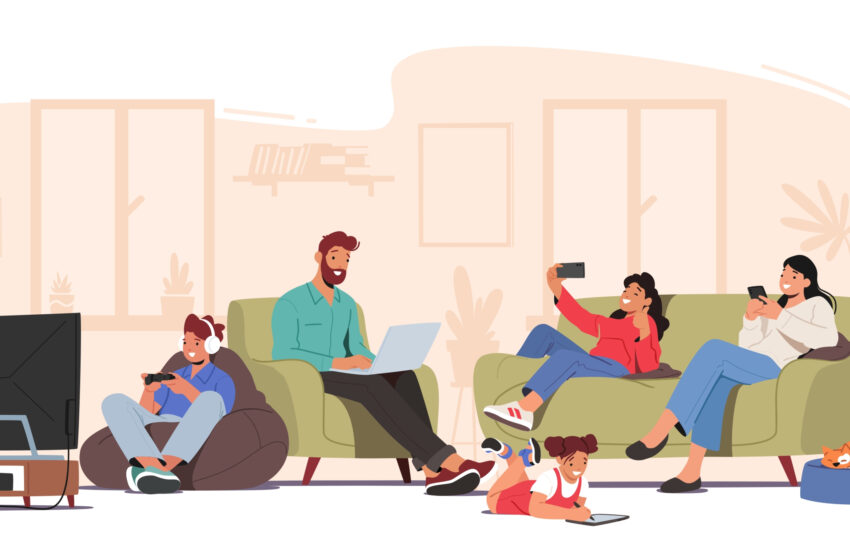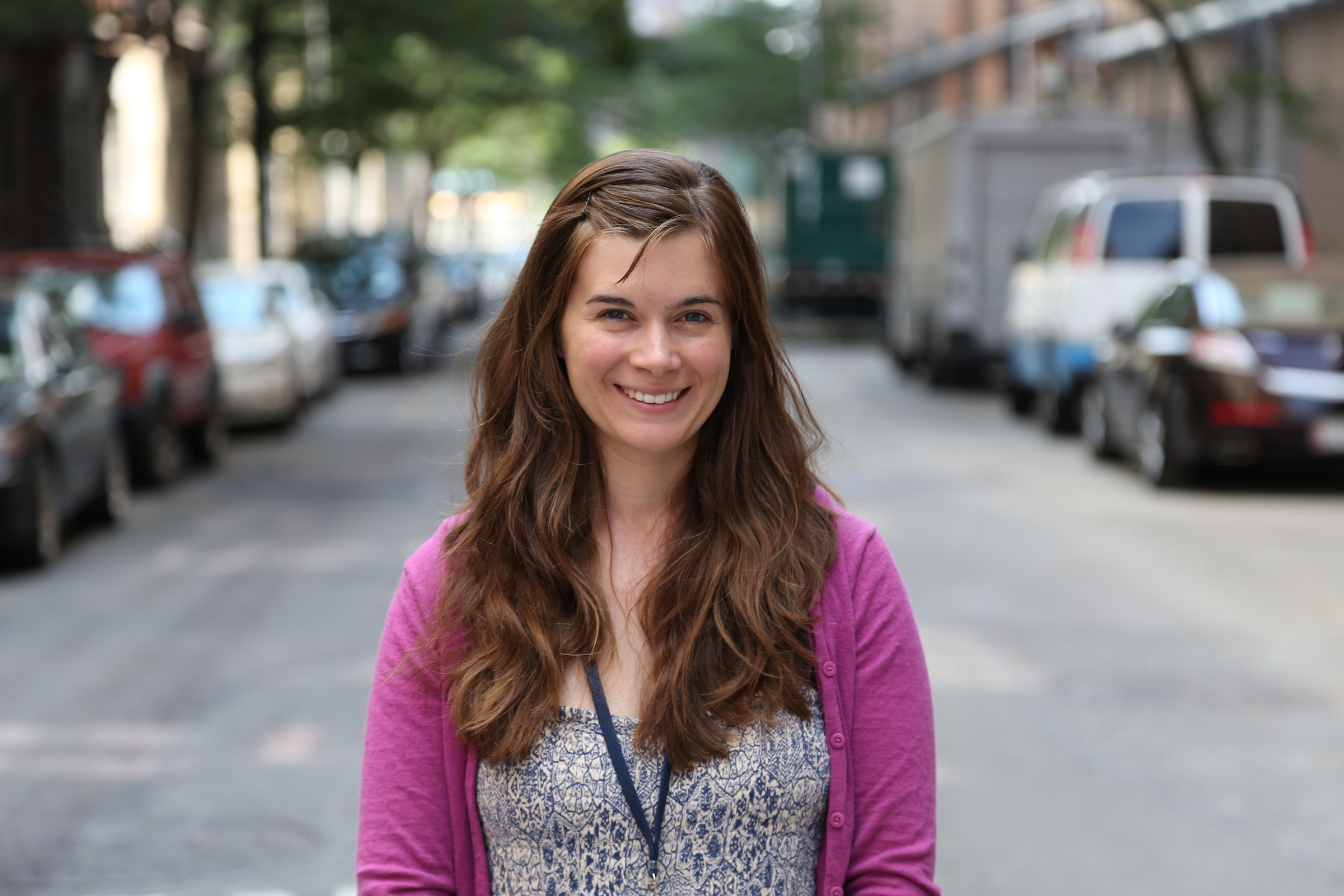As we wrap up this unusual school year and try to adjust to a summer with more freedom than the last, it’s a good time to think about setting expectations with your children for device use over the summer. As we’ve heard from many parents over the past year, the combination of fewer childcare options, hybrid and remote schooling, and fewer socializing opportunities have led to increased screen use among children (and their parents!). However, we as parents can take this opportunity to redefine what the screen use boundaries look like in our families.
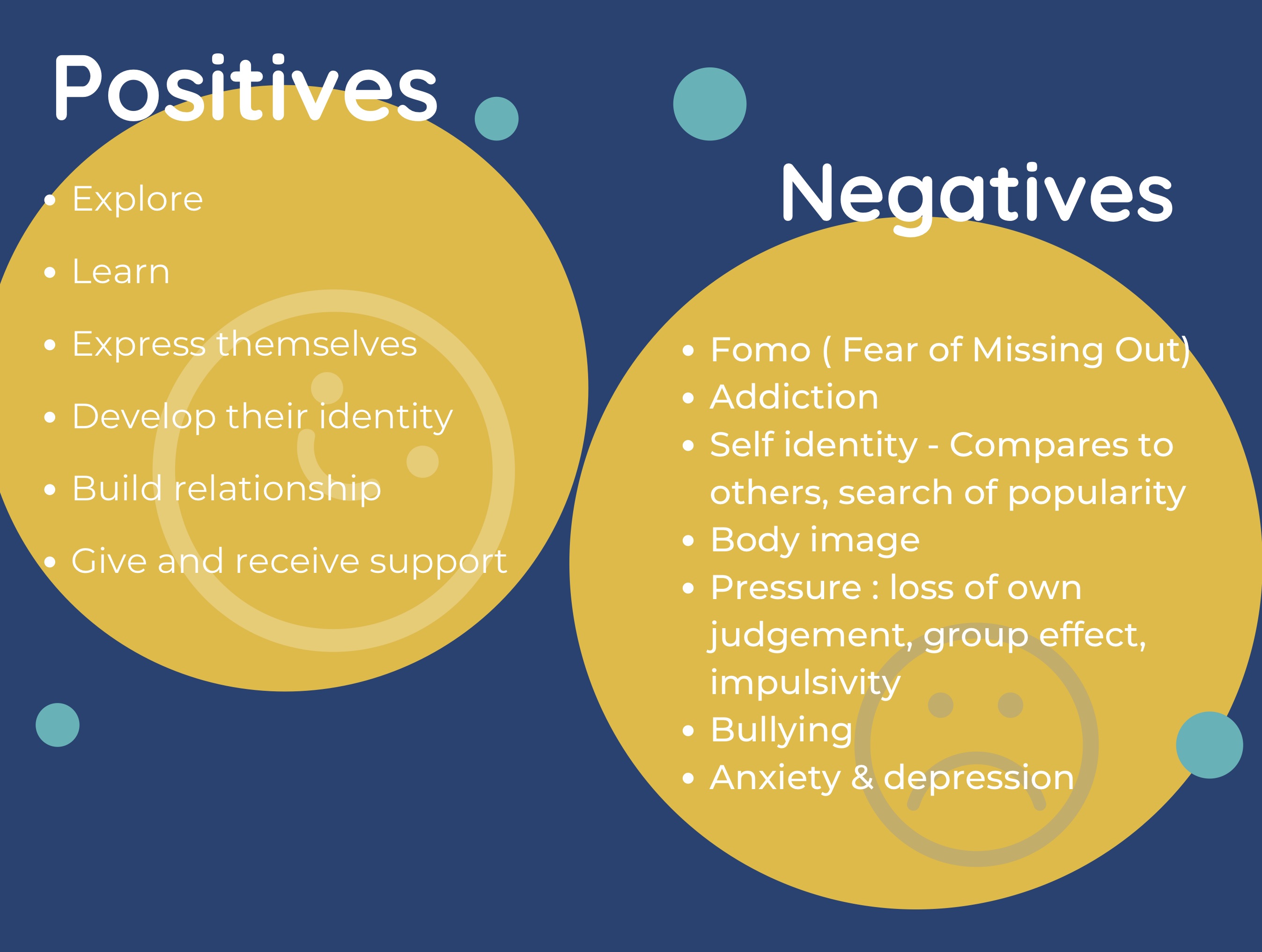
This spring we held workshops for Primary and Secondary parents on the topic of screen use balance and setting boundaries with children. Many parents have had concerns about their children’s increased screen time this year, and below are some of the guidelines that we recommend.
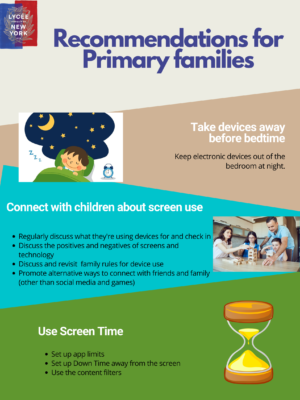
Maternelle – The focus should be on developing their language and movement skills and social interactions. Screen use largely does not benefit children and, in some cases, can impede certain developmental processes. Parents get to decide what content is allowed and how much.
Cycle 2 – Screens can be used for research, educational games, and creation (ex: stop motion animation). Parents should accompany their children during screen use as much as possible and be aware of what websites or apps their children are using. Use ScreenTime parental controls to restrict screen use. Parents get to decide what content is allowed and how much.
Cycle 3 – Students may want to start interacting with their friends through the internet. Please prioritize video calls over chatting through games or messaging apps. Social media accounts are not legally allowed until age 13. Gaming accounts should be created with parental controls. Parents should learn how the apps and games that their children use work. Use ScreenTime parental controls to restrict and monitor screen use. As a reminder, a smartphone is not necessary for 6ème. Parents get to decide what content is allowed and how much.
Collège – Boundaries are still a developmental necessity and you should expect pushback as part of your child’s growth process. Stick to these boundaries since they also help to create a sense of security. Start with compassion and understanding, then work together as a family to define your values and to make changes as your child matures (the older the child, the more negotiating power). Find and support hobbies to replace screen time activities (buying board games, puzzles, art supplies, etc.). Use ScreenTime parental controls to monitor screen use.
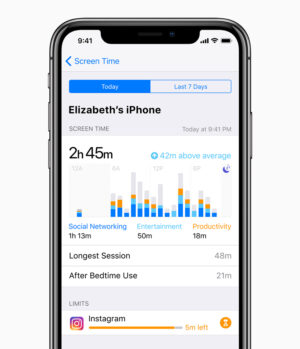
Lycée – Keeping in mind your child’s maturity level, this is a good age to start giving them more space to choose how they use their device. Have discussions about what family rules you still want to maintain (example : no devices in the bedroom at night), but as long screen use doesn’t seem to be interfering with their school or social life, teens should be given more leeway to manage themselves.
Anya Kamentez summarized it nicely à la Michael Pollan, “Enjoy screens. Not too much. Mostly together.” We’re all doing our best, and what works for one family may not work for another. Frequent non-judgemental conversations with your child starting from a young age are a great way to help accompany them in learning about screen use management. For more details on how to do this, you can refer to the recording from our two workshops this spring and the slides.
Amongst continuing student training, we will be offering more parent workshops in the 2021-22 school year. Have a great summer!
Other resources:
Primary Parent Workshop February 2021
Middle School Parent Workshop March 2021
Screen Time Parental Controls – Video / English Guide / French Guide
Guided Access – locks iPad into a specific app; great for Maternelle and Cycle 2
Parenting in the Screen Age : A Guide for Calm Conversations
Common Sense Media – Reviews for what your kids are into
About the Author :
Originally from Pittsburgh, PA, Chesna Flora moved to New York to work at the Lycée as the Primary Digital Learning Integrator in 2015. She studied Linguistics and French at the University of Pittsburgh during which she spent one year at the Sorbonne. She returned to France after college to work as an English language assistant in Bordeaux. This led her to pursue formal training as a teacher, and she completed her Masters in teaching French and Educational Technology at the Université de Bordeaux 3. She has traveled all over the world, but these days spends most of her free time exploring New York City by bike with her two sons.

